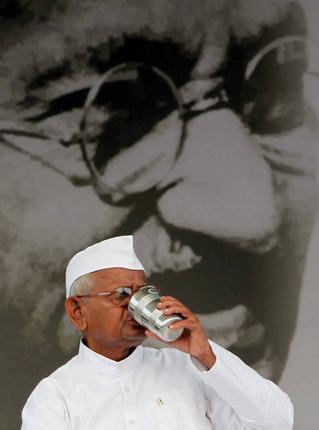
 “கோடோவுக்காகக் காத்திருத்தல்(Waiting for Godot)என்ற பிரசித்தமான அபத்த நாடகத்துடனே இணைத்துப் பார்க்கப்படுகிறது சாமுவெல் பெக்கெட்டின் பெயர். இந்த நாடகத்தில் கோடோ என்ற நபருக்காக இருவர் காத்திருக்கின்றனர். நாடகம் முடியும் போதும் கோடோ வருவதில்லை. 1953ஆம் ஆண்டு இந்த நாடகம் பாரிஸில் மேடை ஏற்றப்படுவதற்கு முன்பு சாமுவேல் பெக்கெட்டைத் தெரியாதவர்கள் அவரை தெரிந்து கொள்ள வைத்தது. இருப்பினும் நவீனத்துவ இலக்கியத்தில், பெக்கெட் பிரதானமாய் நாவலாசிரியராக மதிப்பிடப்படுகிறார். ஜேம்ஸ் ஜாய்சுக்குப் பிறகு நவீனத்துவ இலக்கியத்தில் உச்ச ஸ்தானத்தைப் பெறுபவர் பெக்கெட். நாவல், நாடகம், கவிதை, மொழிபெயர்ப்பு ஆகிய துறைகளில் பெக்கெட்டின் பங்களிப்பு சாதாரணப்படுத்த முடியாதது. ஆங்கிலத்திலும், பிரெஞ்சு மொழியிலும் சரிசமமான சரளத்துடன் படைப்புகளை எழுதியவர். நடிகர்களே இல்லாத நாடகங்கள், வார்த்தைகளே இல்லாத நாடக அங்கங்கள், கதைத் திட்டமே (Plot)இல்லாத நாவல்கள் ஆகியவற்றின் முன்னோடி பெக்கெட்.
“கோடோவுக்காகக் காத்திருத்தல்(Waiting for Godot)என்ற பிரசித்தமான அபத்த நாடகத்துடனே இணைத்துப் பார்க்கப்படுகிறது சாமுவெல் பெக்கெட்டின் பெயர். இந்த நாடகத்தில் கோடோ என்ற நபருக்காக இருவர் காத்திருக்கின்றனர். நாடகம் முடியும் போதும் கோடோ வருவதில்லை. 1953ஆம் ஆண்டு இந்த நாடகம் பாரிஸில் மேடை ஏற்றப்படுவதற்கு முன்பு சாமுவேல் பெக்கெட்டைத் தெரியாதவர்கள் அவரை தெரிந்து கொள்ள வைத்தது. இருப்பினும் நவீனத்துவ இலக்கியத்தில், பெக்கெட் பிரதானமாய் நாவலாசிரியராக மதிப்பிடப்படுகிறார். ஜேம்ஸ் ஜாய்சுக்குப் பிறகு நவீனத்துவ இலக்கியத்தில் உச்ச ஸ்தானத்தைப் பெறுபவர் பெக்கெட். நாவல், நாடகம், கவிதை, மொழிபெயர்ப்பு ஆகிய துறைகளில் பெக்கெட்டின் பங்களிப்பு சாதாரணப்படுத்த முடியாதது. ஆங்கிலத்திலும், பிரெஞ்சு மொழியிலும் சரிசமமான சரளத்துடன் படைப்புகளை எழுதியவர். நடிகர்களே இல்லாத நாடகங்கள், வார்த்தைகளே இல்லாத நாடக அங்கங்கள், கதைத் திட்டமே (Plot)இல்லாத நாவல்கள் ஆகியவற்றின் முன்னோடி பெக்கெட்.

 If what we’re watching on TV is indeed a revolution, then it has to be one of the more embarrassing and unintelligible ones of recent times. For now, whatever questions you may have about the Jan Lokpal Bill, here are the answers you’re likely to get: tick the box — (a) Vande Mataram (b) Bharat Mata ki Jai (c) India is Anna, Anna is India (d) Jai Hind. For completely different reasons, and in completely different ways, you could say that the Maoists and the Jan Lokpal Bill have one thing in common — they both seek the overthrow of the Indian State. One working from the bottom up, by means of an armed struggle, waged by a largely adivasi army, made up of the poorest of the poor. The other, from the top down, by means of a bloodless Gandhian coup, led by a freshly minted saint, and an army of largely urban, and certainly better off people. (In this one, the Government collaborates by doing everything it possibly can to overthrow itself.) In April 2011, a few days into Anna Hazare’s first “fast unto death,” searching for some way of distracting attention from the massive corruption scams which had battered its credibility, the Government invited Team Anna, the brand name chosen by this “civil society” group, to be part of a joint drafting committee for a new anti-corruption law. A few months down the line it abandoned that effort and tabled its own bill in Parliament, a bill so flawed that it was impossible to take seriously.
If what we’re watching on TV is indeed a revolution, then it has to be one of the more embarrassing and unintelligible ones of recent times. For now, whatever questions you may have about the Jan Lokpal Bill, here are the answers you’re likely to get: tick the box — (a) Vande Mataram (b) Bharat Mata ki Jai (c) India is Anna, Anna is India (d) Jai Hind. For completely different reasons, and in completely different ways, you could say that the Maoists and the Jan Lokpal Bill have one thing in common — they both seek the overthrow of the Indian State. One working from the bottom up, by means of an armed struggle, waged by a largely adivasi army, made up of the poorest of the poor. The other, from the top down, by means of a bloodless Gandhian coup, led by a freshly minted saint, and an army of largely urban, and certainly better off people. (In this one, the Government collaborates by doing everything it possibly can to overthrow itself.) In April 2011, a few days into Anna Hazare’s first “fast unto death,” searching for some way of distracting attention from the massive corruption scams which had battered its credibility, the Government invited Team Anna, the brand name chosen by this “civil society” group, to be part of a joint drafting committee for a new anti-corruption law. A few months down the line it abandoned that effort and tabled its own bill in Parliament, a bill so flawed that it was impossible to take seriously.

